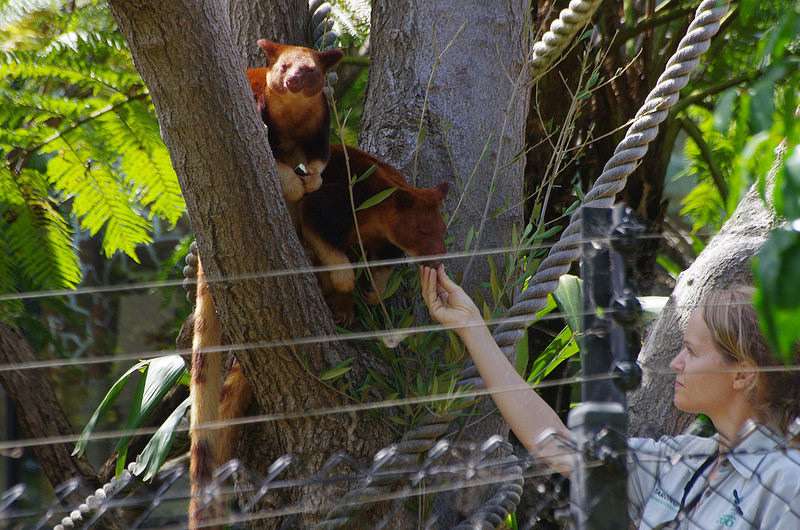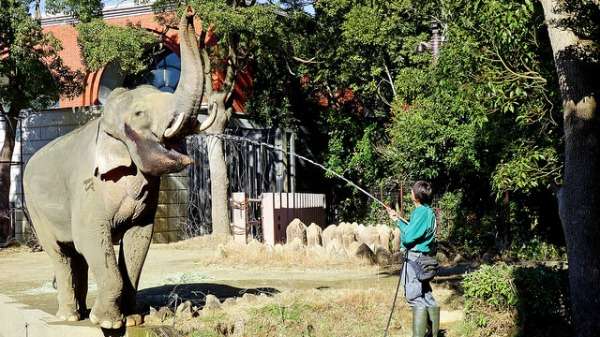Zoos talk, but do people listen?

A study involving 176 zoos from more than 50 countries has found zoos are missing opportunities to educate visitors about conservation and sustainability.
Murdoch University research associate Katie Roe collected data from online questionnaires and conducted in-person interviews across six continents.
Her mission was to determine how zoos engaged the public, the variety and quality of their education programs and their methods of evaluating effectiveness.
Overall, basic signage was responsible for engaging the highest number of people, with 95 per cent reading some signs and 58 per cent reading at least half.
However, she found the messages were not always motivational.
"With over 600,000 million visitors per year, zoos are ideal places to let people know how they can live more sustainably," Dr Roe says.
"But if you go to most zoos and look for positive or negative messages about conservation, most messages are negative and you come away wondering 'what's the point' and thinking there's nothing you can do.
"I'd like to see zoos reframe issues from problems to 'here's a problem but here's a way you can help'.
"Giving people simple alternatives can help the planet."
She points to palm oil being linked with rainforest destruction and orangutan deaths, noting some snacks use palm oil whereas others, such as Australia-owned Vege chips, do not.

"If people remember and buy Vege Chips, before long their competitors have to make a change," she says.
Dr Roe says educational talks could also use improvement.
While three-quarters of participating zoos used educational talks, zoo presenters' ability to use appropriate knowledge and communicate effectively was rare, she says.
"Talks and guided tours entertain and create a personal connection with the animals and the message," Dr Roe says.
"But I discovered zoo keepers are not all public presenters; and if a person is mumbling and uncomfortable, it doesn't achieve anything.
"Zoos should definitely have keeper talks, but the presenter doesn't have to be the keeper—it's more important to have a dynamic, informed presenter."
In terms of school visits, money didn't always translate into effectiveness.
The study found the zoo education program with the best student engagement didn't have internet access and relied on donated recycled goods for craft material.
"But they were clear about what they wanted kids to learn, they kept their messaging simple and they knew how to measure their effectiveness," Dr Roe says.
Provided by Science Network WA

















